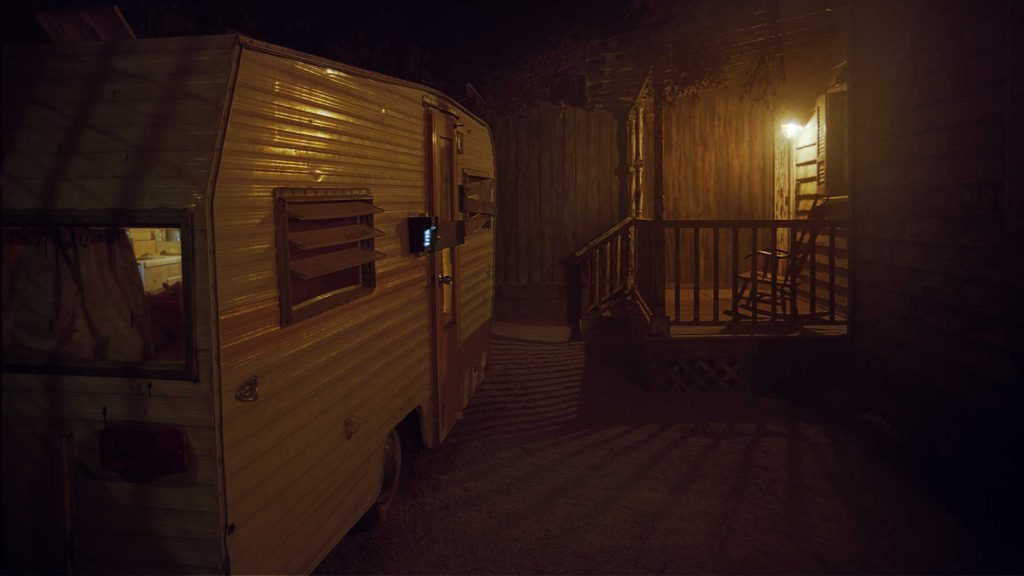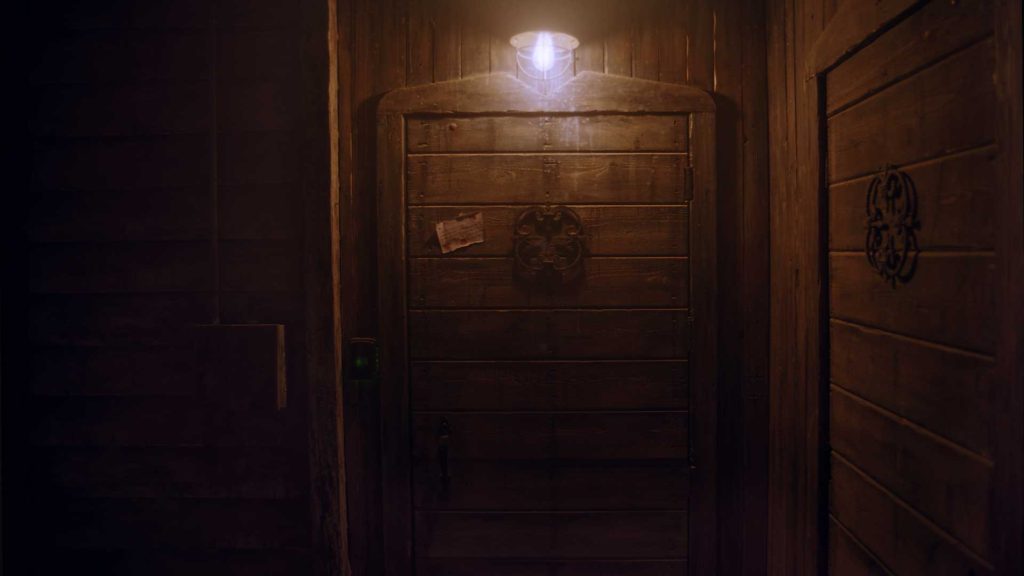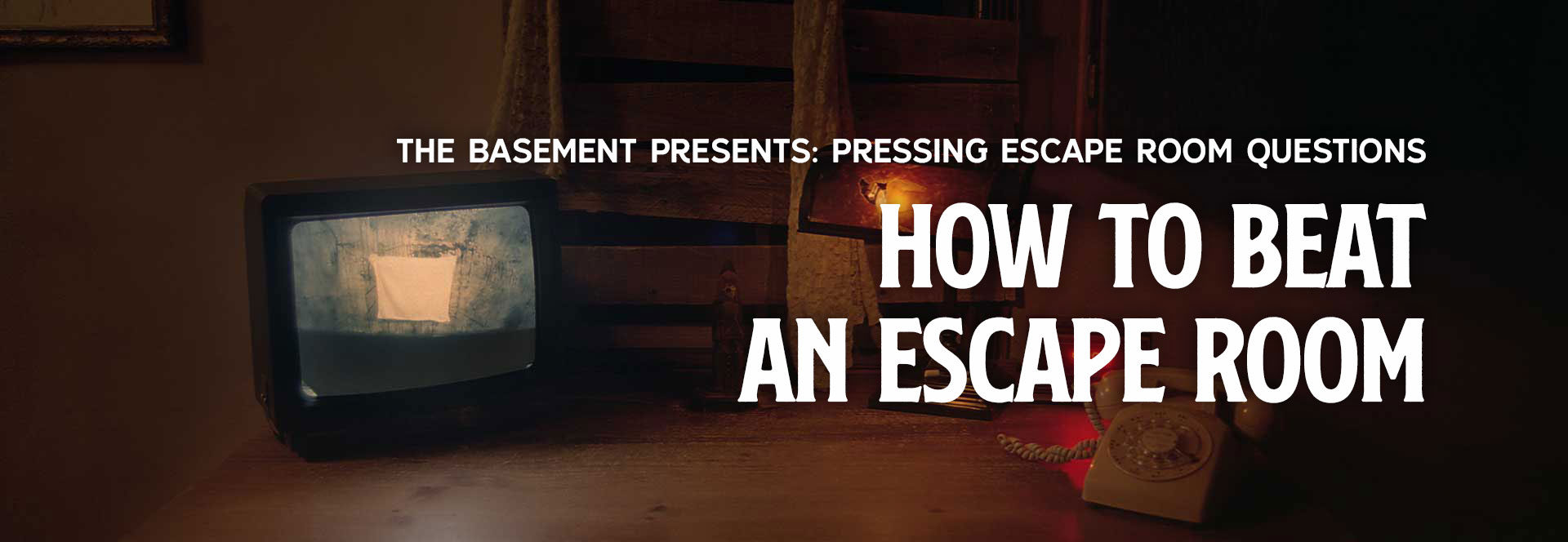How To Beat An Escape Room
Every now and then at The Basement, located in Los Angeles, California, I get the chance to host a group of friends or peers from the industry and I feel compelled to give them some tips on how to beat the escape room before they start. I want them to have the best time possible, and usually them escaping ensures they leave with a smile on their face. For such occasions, I have my go to golden lessons that will give players a much better chance at escaping, and I’m going to share them with you today! So without further ado, here are my top 10 tips for how to beat an escape room:
1. IF YOU WANT TO BEAT AN ESCAPE ROOM, COMMUNICATION IS KEY.
6-10 brains are MUCH more powerful than 1 when working together. That’s why you have to communicate constantly when playing an escape room. Anything that you find, you need to speak up about so that your entire team (or at least most of them) hear you and are made aware of the new item. The same goes for details and ideas of how to interact with the props in the room that you suspect have some function. Let’s say your group finds an interesting lock or safe early on in the game that employs an unclear method of input. Then 20 minutes in, maybe you figure out how the code should be entered… you gotta tell the team! Someone may be in the process or finding the solution, and they may have just needed the details you concocted to make the connection.
“I found a lock that takes a key… but not a regular key! It’s one of those old vintage skeleton keys!”
2. KEEP YOUR ITEMS ORGANIZED.
This is my ace in the hole when I’m giving tips on how to beat an escape room. When you find a box and take something out of it, leave the box open and place it on the floor in a designated “done” corner. If the box was locked, place the lock inside the box. If your team is on board with this practice, and they see your open box on the floor in the “done” pile, they won’t waste time looking at it again. This rule should apply to any item in the room that can be checked: books, folders, boxes, etc. Take any items of interest out, and place the empty vessel on the floor in a “done” pile. Then when it comes to items of interest, have a different place on a flat surface where those are kept. This way the team becomes accustomed to knowing where they need to look when they need a new piece to a puzzle, and where not to waste time looking through things that have already been checked.
3. DON’T PAY ATTENTION TO THE CLOCK.
Our brains work best when they’re relaxed and focused and the same is true when trying to beat an escape room. The time on the clock can only serve to distract you from the challenge at hand. If this is true, then the clock serves essentially no purpose other than to let you know when your game is over. Have a pregame pow wow with your team telling them to do their best to ignore the clock. When you’re focused on a puzzle, it shouldn’t matter if you’re 5 minutes in or 5 minutes from the end, you have one job to do: ESCAPE.
See Related: How Long Does An Escape Room Take?

4. GIVE INACTIVE PLAYERS SIMPLE & STRAIGHT FORWARD TASKS.
We’ve all had the unpleasant experience of bringing the wrong type of person along to try and beat an escape room. Some people are just not cut out for intense critical thinking and that’s okay! Also, first timers often have trouble figuring out where to start and how to initially get involved. Find simple tasks for newbies and inactive players so that their hands and brain don’t go to waste. For example: “Hey Jim, we’re looking for the other half of this screwdriver. Start here and check every inch of this room looking for it!”. You never know.. that escape room virgin may end up bringing a new skill to your team and helping you slay the room.
5. DON’T SPEND MORE THAN 3 – 5 MINUTES STRUGGLING ON ONE PUZZLE.
Our brains tend to get stuck in one modality when staring at the same problem without a break. If you’ve been staring at a group of numbers or symbols and it’s just not clicking, ask someone else to take a look and move on to something else. Chances are, a new brain will have a new way of looking at the puzzle and could crack it within seconds. Five minutes is usually my breaking point where I move on and give my brain a rest. There are usually lots of tasks to jump on, and you can always come back to the original problem later in your game.
6. FIGURE OUT WHAT YOU’RE GOOD AT AND STICK TO IT.
Some people are great at math puzzles, while others are brilliant when it comes to spacial awareness. The important thing is to figure out what you excel at as a team member, and attack puzzles of this type first when they’re found in an escape room. If you’re your team’s resident “spinny combo lock guy/girl”, don’t hesitate to jump on it when someone starts yelling out three 2-digit numbers. There’s no point in torturing yourself with that cryptogram, if ciphers just aren’t your thing. You’ll just waste time trying to force it, so call out the puzzle type and then say “is anyone good at this type of thing?” and hopefully someone will come to the rescue.

7. ELECT A LEADER.
There’s usually going to be someone in your group that has played a few escape rooms (or over 200 if you’re like me) and chances are they’re your best bet when it comes to escaping. Find out who this is and ask them to be the leader/director/bossy boss. Their job is less puzzle solving, and more keeping the team focused on your common goal. As a leader, you can participate in some light puzzle solving, but more so, you’re going to want to be watching and listening to others as they solve, keeping them on track and helping make cross-group connections. That way you can take a piece found by one group and offer it up to another that needs it. You can also serve as a coach, reminding frustrated players to move on to another puzzle, and to help your team stick to the rest of the previous rules laid out in this list.
8. WORK BACKWARDS WHEN STUCK.
This one is key when you’re just stuck and there doesn’t seem to be a discernible next move. Of all of these tips, I think this one has helped me the most when it comes to obtaining my (near) perfect record. Instead of trying to find your next step, look at what there is to solve in your current space. “There are two locks that we have access to, but that we haven’t opened. One of them is a 4 digit code, and the other requires a 5-letter word.” Okay, so then let’s focus on the 5-letter word. Start trying to find elements in the room that could produce a 5-letter word if looked at in the right way. Usually knowing the format of the code you’re looking for will greatly aid in finding where you’re next move lies. Another example would be a directional lock. You know you’re looking for directions, so try to find an element in the room that could possibly produce a list of directions. Some examples include, any writing with north, south, east, or west mentioned, arrows anywhere in the room, and even foot prints facing in different directions.
9. ASK THE RIGHT PRE-GAME QUESTIONS.
Before your game even starts, it’s important that you are aware of all the policies and factors that make this venue unique. My number one question is always whether items in the room can and will be used more than once. Knowing this can make or break your ability to escape, so don’t let that game master close the door before you ask. Knowing that each item can only be used once will allow you to place used items in your “done” pile so that no other group members waste time on them. Inversely, knowing that a few items are used more than once will stop you from discounting that black light that you used 10 minutes ago.
“Do we ever need to use the same item or clue more than once?”
Another important thing to query is whether asking your GM questions about the mechanics of the game will count against your hints. Most venues give you a finite number of hints, and you don’t want it to count against you if you ask questions that don’t necessarily have to do with the puzzle’s solutions. An example of this would be if you were working on a puzzle and you weren’t sure if it was functioning correctly. You may want to ask “are we doing this right?” and it’s important to know whether this question is going eat up one of your precious hints.

10. READ THE ENTIRE CLUE.
I can’t tell you how many times I’ve watched people pick up a paper clue, read 25% of it, and then toss it aside, when the information they were looking for was hidden in the last 75% of the writing. The game designer most likely has reasoning behind almost every piece of material in the room, so don’t discount portions of text because you’re lazy and don’t like to read (go see Parasite – a fantastic movie and you need to grow up and start letting a few subtitles into your life). I have a rule of thumb, that if I commit to picking up a clue, then I am going to make sure I take in every inch of it. I read every word, process every symbol and graphic, and don’t put it down until I’ve committed at least the gist of it to memory. Now look, I’m not saying memorize the whole cipher, but take note of how many symbols there are on it, whether they’re letters or numbers, etc.
HONORABLE MENTIONS
That concludes my list of tips for how to beat an escape room, but here are a few smaller (but still important) pieces of advice that didn’t quite make the cut:
- Never under any circumstances put anything in your pockets.
- Stay calm and never allow the stress of the room to affect your focus.
- Always be polite and courteous to your game master and your fellow team members.
- If you’re in a scary escape room, don’t allow fear to affect your focus. Nothing in the room is going to hurt you.
Alright, so that’s it! Read these tips and you’ll be setting escape room records in no time – happy escaping friends!
P.S. For more fun tips on how to beat an escape room, check out this awesome video from Mark Rober: https://www.youtube.com/watch?v=zwgaTYOx0RI
—
The Basement is a Live Escape Room Experience based in Los Angeles, CA. Schedule your experience today or find us on Instagram, Facebook, Twitter, YouTube and Yelp.

